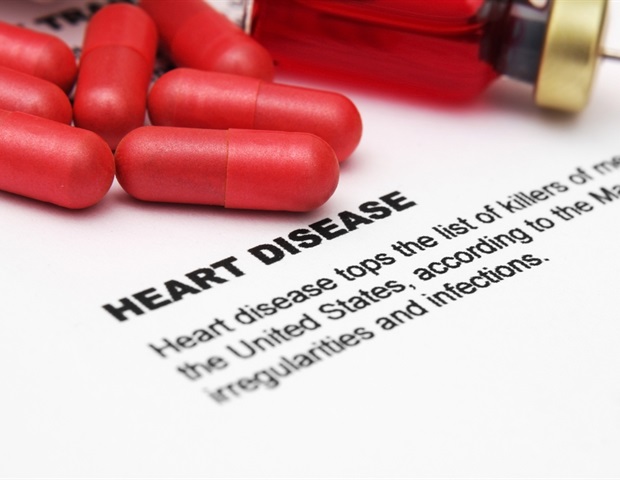Health
Women Face Barriers in Cardiac Rehabilitation Participation

Cardiac rehabilitation programs offer critical support for individuals recovering from heart surgery or significant cardiovascular events. Participation in these programs is associated with improved recovery outcomes, including lower rates of hospital readmission and a reduced risk of future heart attacks. Despite these advantages, participation rates remain low, particularly among women. Research reveals that even when women engage in these programs, they are less likely to complete them compared to their male counterparts.
According to Jessica Golbus, M.D., a cardiologist at the University of Michigan Health Frankel Cardiovascular Center, there are several barriers preventing women from accessing cardiac rehabilitation. The challenges are multifaceted, encompassing lower referral rates, biases in clinician recommendations, and logistical issues such as insurance coverage and transportation. These obstacles are exacerbated for women from underrepresented racial groups.
Understanding the Benefits and Barriers
Cardiac rehabilitation delivers universal benefits, including the reduction of risk factors for future cardiovascular events. This can involve lowering blood pressure and cholesterol levels while enhancing overall quality of life. Despite lower participation rates, studies indicate that women who do engage with cardiac rehabilitation derive at least the same benefits as men.
Golbus emphasizes the need for women to consider enrolling in these programs: “There is substantial research illustrating that cardiac rehabilitation is essential for optimizing recovery. I would encourage anyone who thinks they might be eligible to discuss it with their clinical team.”
The disparity in referral rates is a significant barrier. Women are often less likely to be referred for cardiac rehabilitation compared to men, often due to biases in diagnosis and treatment discussions. Research shows that patients who discuss rehabilitation options with their clinicians are more likely to enroll, yet this conversation occurs less frequently with women.
Tackling Participation Disparities
Women recovering from cardiovascular events may have specific needs that standard rehabilitation programs do not adequately address. For instance, women are more likely to experience depression and psychosocial distress following a heart event. Additionally, they tend to be older at the time of diagnosis and may have concurrent health issues that impact their ability to participate in exercise programs.
To bridge the gap in cardiac rehabilitation participation, Golbus advocates for targeted interventions. Increasing referral rates for women is one of the simplest solutions. Implementing an automatic referral process has shown promise in boosting enrollments. Other effective strategies include physician recommendations and facilitated enrollment through case managers, which can help raise awareness about cardiac rehabilitation.
Tailoring programs specifically for women could also improve outcomes. This might involve offering a wider range of exercise options, focused education sessions, and enhanced psychosocial support. Peer support groups post-diagnosis can provide critical emotional support, leading to improved quality of life and lower rates of depression and anxiety.
Finally, the potential for virtual cardiac rehabilitation, leveraging digital health technologies, presents a promising avenue for enhancing access. By minimizing the need for transportation to in-person sessions, virtual options may enable more women to participate and complete rehabilitation programs.
In conclusion, while the benefits of cardiac rehabilitation are clear, addressing the barriers faced by women is essential to improve participation and optimize recovery outcomes. Initiatives aimed at increasing awareness, enhancing referral processes, and tailoring programs to meet women’s unique needs can pave the way for more inclusive and effective cardiac care.
-

 Entertainment2 months ago
Entertainment2 months agoAnn Ming Reflects on ITV’s ‘I Fought the Law’ Drama
-

 Entertainment3 months ago
Entertainment3 months agoKate Garraway Sells £2 Million Home Amid Financial Struggles
-

 Health2 months ago
Health2 months agoKatie Price Faces New Health Concerns After Cancer Symptoms Resurface
-

 Entertainment2 months ago
Entertainment2 months agoCoronation Street’s Carl Webster Faces Trouble with New Affairs
-

 Entertainment2 months ago
Entertainment2 months agoWhere is Tinder Swindler Simon Leviev? Latest Updates Revealed
-

 Entertainment3 months ago
Entertainment3 months agoKim Cattrall Posts Cryptic Message After HBO’s Sequel Cancellation
-

 Entertainment2 months ago
Entertainment2 months agoOlivia Attwood Opens Up About Fallout with Former Best Friend
-

 Science2 weeks ago
Science2 weeks agoBrian Cox Addresses Claims of Alien Probe in 3I/ATLAS Discovery
-

 Entertainment2 months ago
Entertainment2 months agoMasterChef Faces Turmoil as Tom Kerridge Withdraws from Hosting Role
-

 Entertainment3 months ago
Entertainment3 months agoMarkiplier Addresses AI Controversy During Livestream Response
-

 Entertainment4 months ago
Entertainment4 months agoSpeculation Surrounds Home and Away as Cast Departures Mount
-

 World2 months ago
World2 months agoCole Palmer’s Mysterious Message to Kobbie Mainoo Sparks Speculation











